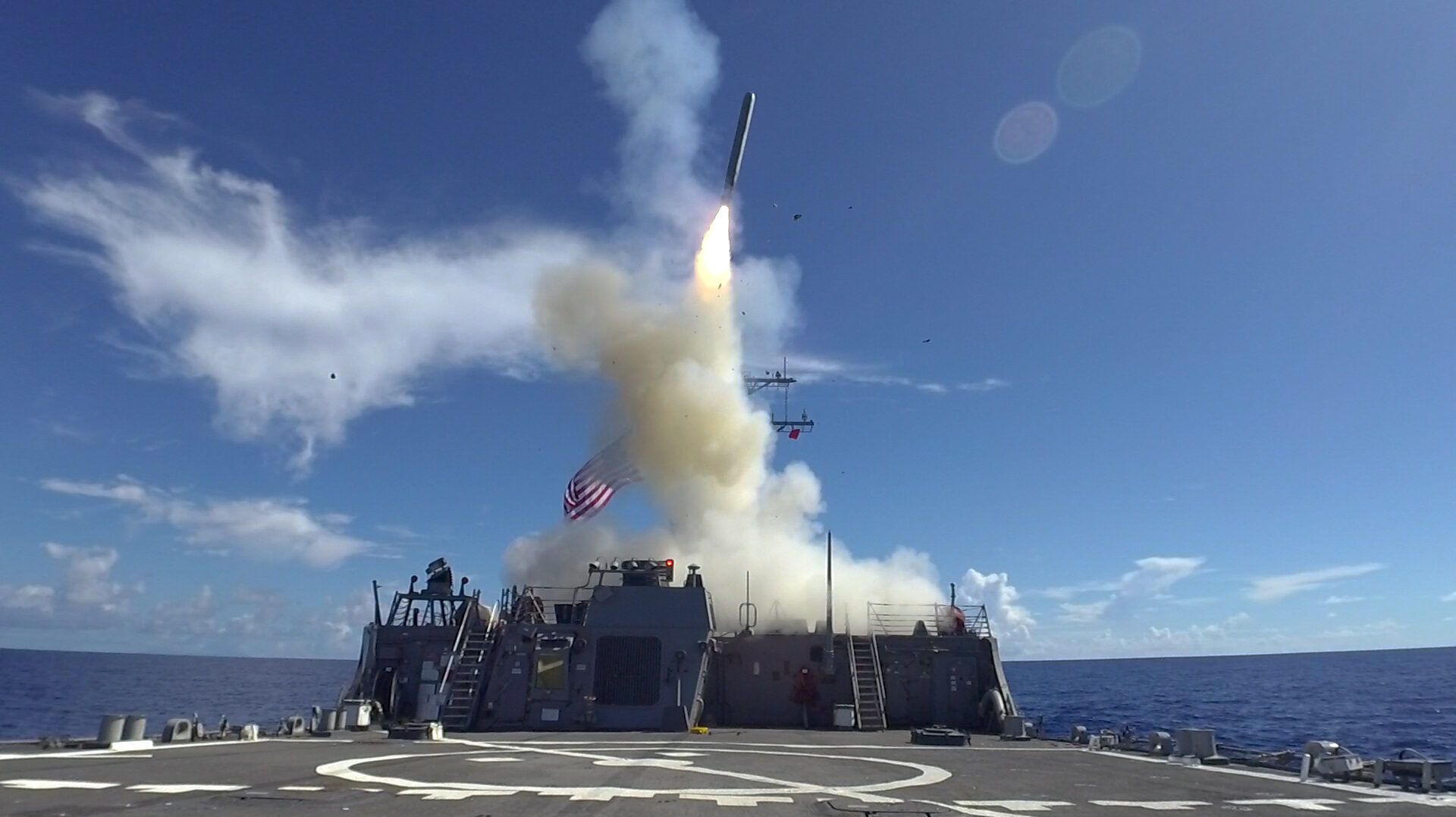
WASHINGTON — The US State Department today approved the potential sale of hundreds of Raytheon-made Tomahawk missiles and associated systems to Japan for $2.4 billion.
Japan had requested to buy 400 missiles — 200 Block IV All Up Rounds and 200 Block V — as well as 14 control systems, plus software, hardware, training and other add-ons.
“The proposed sale will improve Japan’s capability to meet current and future threats by providing a long range, conventional surface-to-surface missile with significant standoff range that can neutralize growing threats. Japan will have no difficulty absorbing these articles into its armed forces,” says a public notice on the Defense Security Cooperation Agency’s website.
The announcement comes as the Biden administration pursues parallel strategies in the Indo-Pacific: that of healing some of the strained relations with China while investing heavily in American allies in the region to counter Beijing’s aggression there. Both were on display in recent days as US Defense Secretary Lloyd Austin met with the military chiefs of South Korea and Japan in Asia last week, and President Joe Biden hosted Chinese leader Xi Jinping for a historic visit at the White House ahead of the Asia-Pacific Economic Cooperation (APEC) summit this week in San Francisco.
RELATED: Still ways to go before mil-to-mil talks with China restart, NSC official says
Earlier this week the State Department approved two other major potential sales for missiles for South Korea. One proposal was for $650 million-worth of Raytheon’s Standard Missile 6 Block 1, and the other for $52 million in AIM-9X Block II and Block II+ Sidewinders, also made by Raytheon.
The unit numbers and dollar values of all these deals are subject to change as negotiations continue, and Congress, too, could always step in to block the deals — though broad agreement about the strategic threat of China on Capitol Hill, plus America’s relationship with Japan, makes that unlikely.